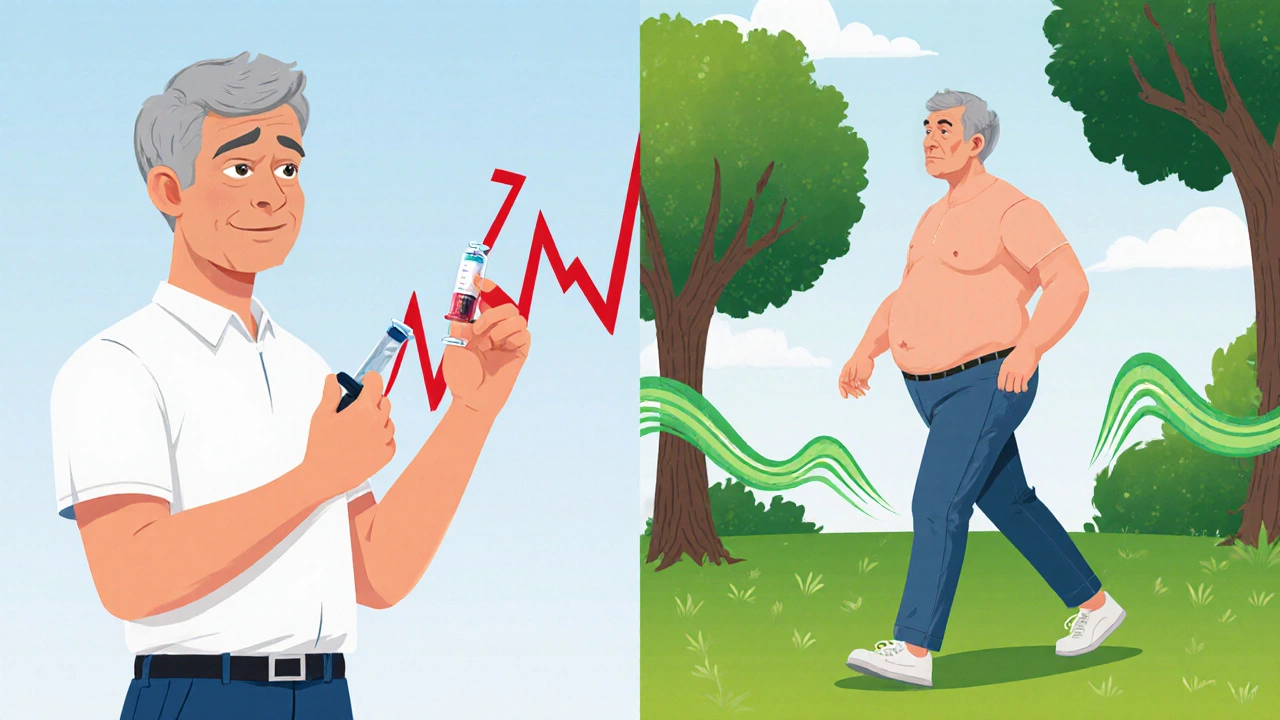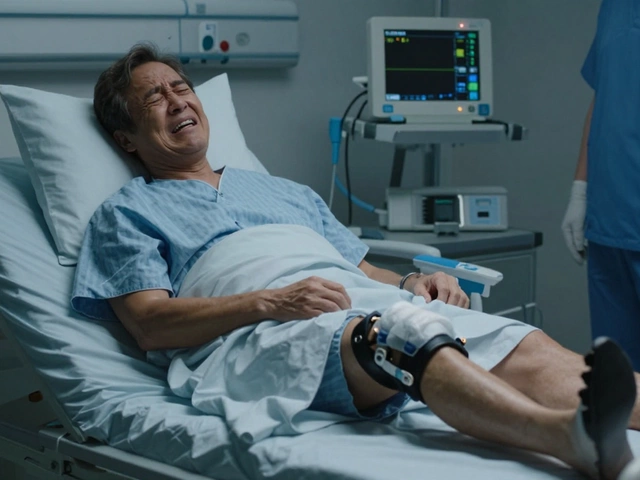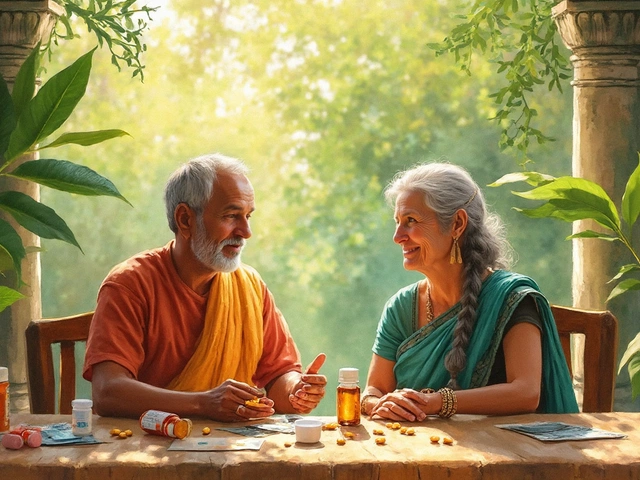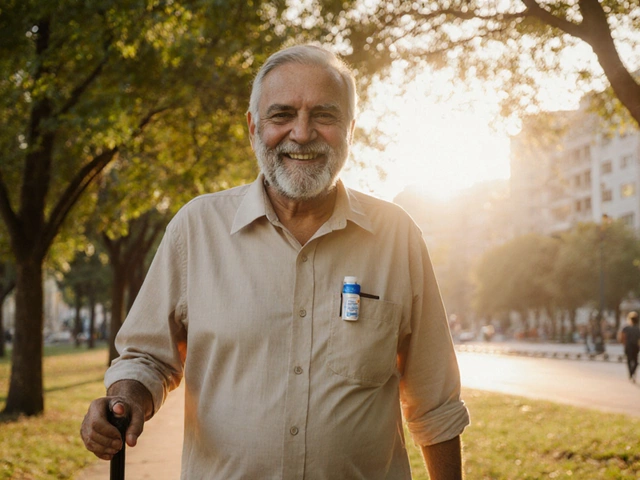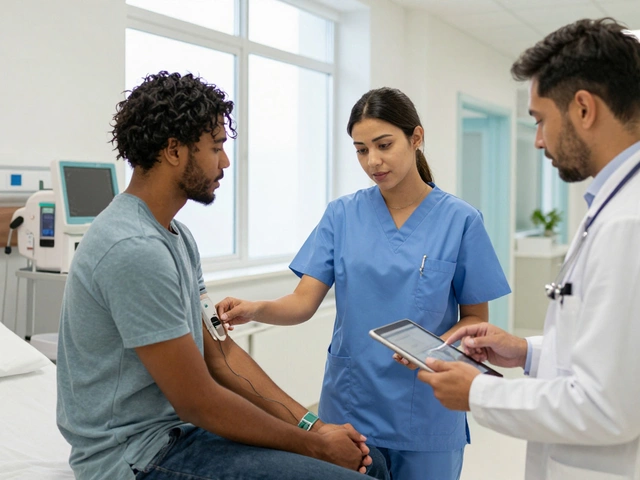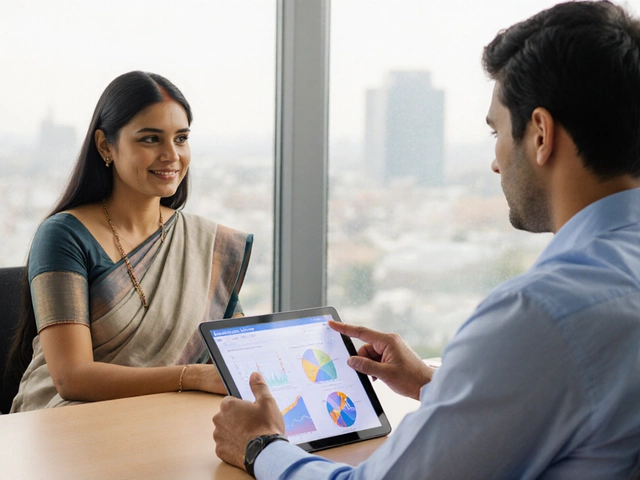Diabetes Medication Matchmaker
Answer these questions to get personalized medication recommendations based on your specific health profile and treatment goals.
Primary Recommendation
Alternative Options
There’s no single "strongest" medicine for diabetes that works for everyone. The idea of a magic bullet - one drug that crushes high blood sugar for all patients - is a myth. Diabetes isn’t one disease. It’s a group of conditions with different causes, progression patterns, and patient needs. What works wonders for one person might do little or even cause harm to another. The real question isn’t which drug is strongest, but which one is right for you.
What "Strongest" Really Means in Diabetes Treatment
When people ask for the "strongest" medicine, they usually mean one that lowers blood sugar the fastest or the most. But in diabetes, that’s not always better. A drug that drops your glucose from 300 mg/dL to 80 mg/dL in a day might sound impressive - until it drops it further to 50, causing dizziness, confusion, or even a seizure. That’s hypoglycemia, and it’s dangerous.
Doctors don’t pick drugs based on raw power. They look at:
- How much HbA1c (average blood sugar over 3 months) the drug lowers
- Weight effects - does it help lose weight or cause gain?
- Heart and kidney protection - does it reduce risk of heart attack or kidney failure?
- Side effects - nausea, pancreatitis, infections?
- Cost and how often you need to take it
Some drugs are powerful at lowering sugar but come with heavy trade-offs. Others are milder but protect your body long-term. The strongest tool isn’t always the best one.
Top Medications That Lower Blood Sugar the Most
Based on clinical data from the American Diabetes Association and large global trials, here are the top performers in HbA1c reduction:
| Medication Class | Typical HbA1c Reduction | Weight Effect | Cardiovascular Benefit |
|---|---|---|---|
| Insulin (Basal, like glargine) | 1.5% - 2.0% | Weight gain | Neutral |
| GLP-1 Agonists (semaglutide, tirzepatide) | 1.8% - 2.4% | Weight loss (5-15%) | Yes - reduces heart attack and stroke risk |
| SGLT2 Inhibitors (empagliflozin, dapagliflozin) | 0.7% - 1.2% | Weight loss (2-4%) | Yes - lowers heart failure and kidney disease risk |
| Metformin | 0.7% - 1.5% | Neutral or slight loss | Some benefit, especially in overweight patients |
| DPP-4 Inhibitors (sitagliptin) | 0.5% - 0.8% | Neutral | Neutral |
As you can see, GLP-1 agonists like semaglutide (Ozempic, Wegovy) and tirzepatide (Mounjaro) are the most effective at lowering HbA1c - often cutting it by over 2%. But they’re not just about numbers. These drugs also help you lose weight, reduce cravings, and protect your heart. In trials, patients on semaglutide had a 20% lower risk of heart attack, stroke, or death from heart disease compared to placebo.
Why Insulin Isn’t Always the "Strongest" Choice
Many assume insulin is the strongest because it directly replaces what the body lacks. And yes - insulin can drop blood sugar faster than any oral pill. But it’s not always the best first step.
Insulin requires careful dosing. Too little, and sugar stays high. Too much, and you risk low blood sugar - sometimes while driving, sleeping, or working. It often causes weight gain, which makes insulin resistance worse. Many people avoid starting insulin because of injections, fear of side effects, or stigma.
Today, doctors often delay insulin until other options fail. For someone with Type 2 diabetes and obesity, starting a GLP-1 agonist like semaglutide might bring HbA1c down to 6.5% while helping them lose 10 kg. That’s often enough to avoid insulin for years - or even reverse the need for it entirely.
Who Needs the "Strongest" Drugs?
Not everyone needs a powerful medication. Treatment depends on:
- How high your HbA1c is (above 9%? You need stronger action)
- How long you’ve had diabetes (longer duration = more beta-cell damage)
- Your weight (obesity makes insulin resistance worse)
- Heart or kidney problems (some drugs protect these organs)
- Cost and access (in India, insulin is cheaper than semaglutide)
For example:
- A 55-year-old with HbA1c of 10.2%, obesity, and high blood pressure? Start with a GLP-1 agonist + metformin. It tackles sugar, weight, and heart risk together.
- A 70-year-old with HbA1c of 8.5%, normal weight, and kidney disease? An SGLT2 inhibitor like dapagliflozin is safer and protects the kidneys.
- A 40-year-old with HbA1c of 7.8%, no complications, and good diet control? Metformin alone might be enough.
What About Newer Drugs Like Tirzepatide?
Tirzepatide (Mounjaro) is the newest player. It works like a GLP-1 agonist but also activates GIP receptors - a second pathway that helps control appetite and glucose. In trials, it lowered HbA1c by up to 2.4% and helped people lose up to 15% of their body weight. That’s more than any other diabetes drug on the market.
But it’s expensive. In India, a monthly dose of tirzepatide can cost over ₹15,000. Insurance rarely covers it. For many, it’s not a practical first choice - even if it’s the most powerful.
Still, for patients with severe diabetes and financial means, tirzepatide represents the current peak of medical effectiveness. It’s not a cure, but it’s the closest thing we have to turning back the clock on Type 2 diabetes.
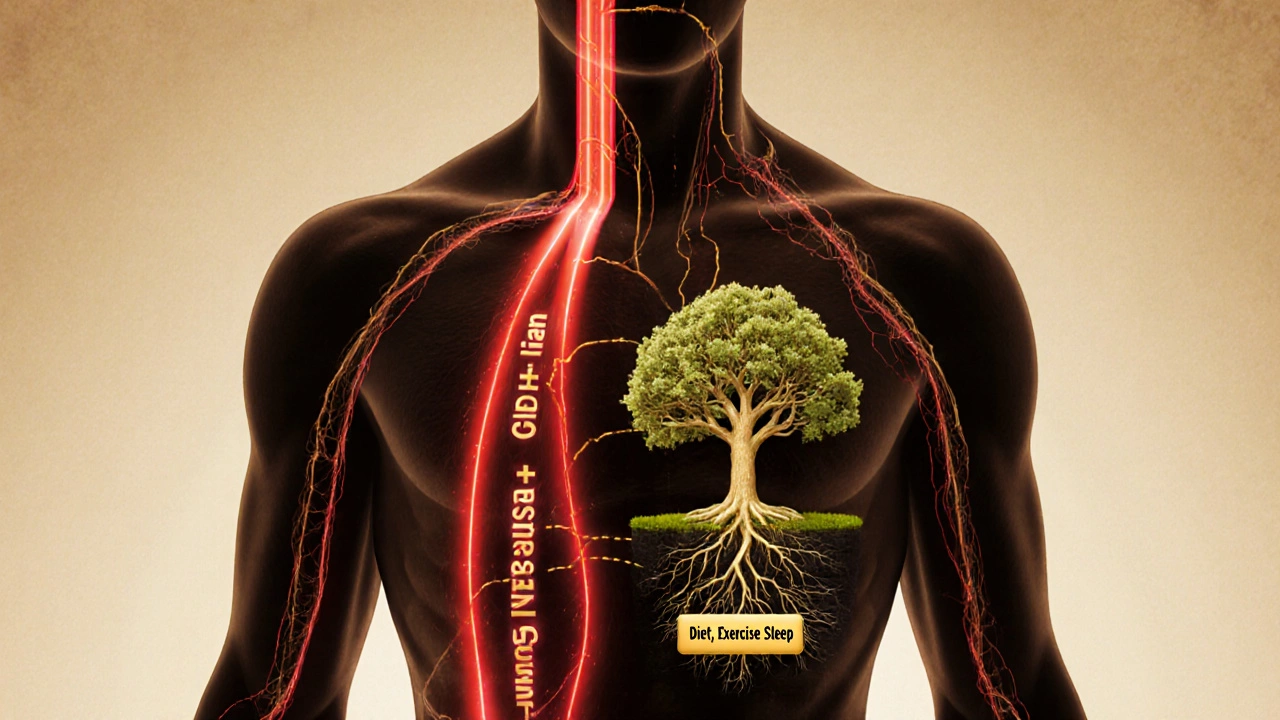
The Real "Strongest" Medicine: Lifestyle + Medication Together
Even the most powerful drug fails if you keep eating sugary foods, sitting all day, or skipping doses. The strongest medicine isn’t a pill or injection - it’s consistency.
Studies show that people who combine medication with:
- 150 minutes of walking per week
- Reducing refined carbs and added sugar
- Getting 7 hours of sleep
- Managing stress (cortisol raises blood sugar)
…can reduce their HbA1c by 2% or more - even without changing drugs. In some cases, people with Type 2 diabetes go off all medications entirely.
One patient I saw in Bangalore - a 52-year-old man with HbA1c of 10.8% - started on semaglutide and began walking 6 km daily. In 6 months, his HbA1c dropped to 5.9%. He stopped all diabetes meds. He didn’t need the "strongest" drug alone. He needed the right drug, plus action.
What to Do If You’re Wondering About the Strongest Medicine
If you’re asking this question, you’re probably frustrated. Maybe your sugar hasn’t budged despite trying metformin. Maybe you’re scared of needles or weight gain. Here’s what to do next:
- Get your HbA1c tested if you haven’t in the last 3 months
- Ask your doctor: "What’s my biggest risk right now - high sugar, weight gain, or heart/kidney damage?"
- Discuss options: GLP-1 agonists, SGLT2 inhibitors, or insulin - not just "what’s strongest," but "what’s safest and most sustainable for me?"
- Don’t compare yourself to others. What worked for your friend may not work for you.
- Track your progress: blood sugar logs, weight, energy levels - not just HbA1c numbers.
There’s no top-ranked drug that wins for everyone. The strongest medicine is the one you’ll take every day - the one that fits your life, your body, and your goals.
Is insulin the strongest medicine for diabetes?
Insulin is powerful at lowering blood sugar quickly, but it’s not always the strongest choice. It can cause weight gain and low blood sugar, and many patients do better with newer drugs like GLP-1 agonists that lower sugar, help with weight loss, and protect the heart - often with fewer side effects.
What is the most effective diabetes drug in 2025?
In 2025, tirzepatide (Mounjaro) and semaglutide (Ozempic, Wegovy) are the most effective for lowering HbA1c and promoting weight loss. Tirzepatide reduces HbA1c by up to 2.4% and helps patients lose up to 15% of body weight. But effectiveness depends on individual factors like cost, access, and health conditions.
Can diabetes be reversed with medicine alone?
Medicine alone rarely reverses Type 2 diabetes. But when combined with weight loss, improved diet, and regular movement, powerful drugs like GLP-1 agonists can help some people achieve remission - meaning normal blood sugar without meds. This is most likely in early-stage diabetes with significant weight loss.
Why do some people need multiple diabetes medications?
Diabetes is a progressive disease. Over time, the pancreas makes less insulin, and the body becomes more resistant. One drug often isn’t enough. Combining metformin with a GLP-1 agonist or SGLT2 inhibitor targets multiple pathways - improving insulin sensitivity, reducing liver sugar output, and slowing digestion - for better control.
Are there natural alternatives to strong diabetes medicines?
No natural supplement replaces prescription diabetes medicine. Herbs like cinnamon or fenugreek may slightly lower blood sugar, but not enough for someone with HbA1c above 8%. Relying on them instead of proven drugs can lead to serious complications. Always talk to your doctor before stopping or switching medications.
Final Thought: It’s Not About Power - It’s About Precision
The strongest medicine for diabetes isn’t the one with the highest dose or the flashiest results. It’s the one that fits your body, your lifestyle, and your long-term health. A drug that lowers sugar by 1.5% and helps you live longer, feel better, and avoid hospital visits is more powerful than one that drops it by 2% but leaves you tired, hungry, or broke.
Work with your doctor. Track your progress. Don’t chase the hype. The goal isn’t to find the strongest drug - it’s to find the right one for your life.
